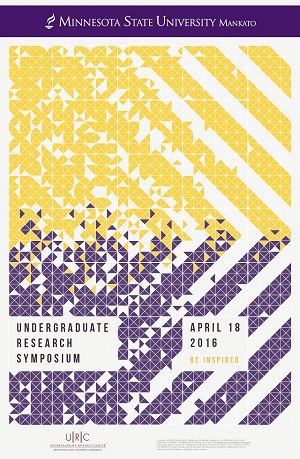Event Title
Interpreting the Interscholastic Sport Eco-System: A Pilot Investigation
Location
CSU Ballroom
Start Date
18-4-2016 2:00 PM
End Date
18-4-2016 3:30 PM
Student's Major
Human Performance
Student's College
Allied Health and Nursing
Mentor's Name
Emily Stark
Mentor's Department
Psychology
Mentor's College
Social and Behavioral Sciences
Second Mentor's Name
Jedediah Blanton
Second Mentor's Department
Human Performance
Second Mentor's College
Allied Health and Nursing
Third Mentor's Name
Austin O'Brien
Third Mentor's Deparment
Human Performance
Third Mentor's College
Allied Health and Nursing
Description
Recently, high school sport coaches and administrators have expressed an interest in advocating for “education- based athletics” to define and differentiate the interscholastic adolescent sport experience from private sport offerings (Blanton, 2013). In related studies, investigators have identified that sport can contribute to teaching valuable life lessons if coaches consistently adhere to a life skills infused coaching philosophy (Hodge et al., 2013). Though researchers have done well to examine how sport influences development through coach and athlete interactions, a missing component in contemporary research is a consideration of the context where sport performance takes place. To better understand how sport could impact young people, researchers should examine those individuals in leadership positions as persons of influence over the adolescent athlete’s interscholastic sport experiences. Interviews with a coach and an athletic director about the full sporting context within an educational institution revealed two key components of how the context can contribute to an education-based athletic environment. A “shared leadership vision” in the education-based sport experience was repeatedly acknowledged. Qualities such as responsibility, adaptability, and integrity were all used as teaching tools while giving each level of the sport system autonomy in developing those qualities. Intentional, but not sport- centered, social gatherings were also profound throughout each interview. Experiences outside of sport itself were expressed as having an everlasting impact on athletes’ development, such as team gatherings and leadership conferences. Based on the interviews, it seems necessary to incorporate a shared vision focused toward athlete’s psychological growth throughout the educational sport system.
Interpreting the Interscholastic Sport Eco-System: A Pilot Investigation
CSU Ballroom
Recently, high school sport coaches and administrators have expressed an interest in advocating for “education- based athletics” to define and differentiate the interscholastic adolescent sport experience from private sport offerings (Blanton, 2013). In related studies, investigators have identified that sport can contribute to teaching valuable life lessons if coaches consistently adhere to a life skills infused coaching philosophy (Hodge et al., 2013). Though researchers have done well to examine how sport influences development through coach and athlete interactions, a missing component in contemporary research is a consideration of the context where sport performance takes place. To better understand how sport could impact young people, researchers should examine those individuals in leadership positions as persons of influence over the adolescent athlete’s interscholastic sport experiences. Interviews with a coach and an athletic director about the full sporting context within an educational institution revealed two key components of how the context can contribute to an education-based athletic environment. A “shared leadership vision” in the education-based sport experience was repeatedly acknowledged. Qualities such as responsibility, adaptability, and integrity were all used as teaching tools while giving each level of the sport system autonomy in developing those qualities. Intentional, but not sport- centered, social gatherings were also profound throughout each interview. Experiences outside of sport itself were expressed as having an everlasting impact on athletes’ development, such as team gatherings and leadership conferences. Based on the interviews, it seems necessary to incorporate a shared vision focused toward athlete’s psychological growth throughout the educational sport system.
Recommended Citation
McCarver, Zachary. "Interpreting the Interscholastic Sport Eco-System: A Pilot Investigation." Undergraduate Research Symposium, Mankato, MN, April 18, 2016.
https://cornerstone.lib.mnsu.edu/urs/2016/poster-session-B/18



